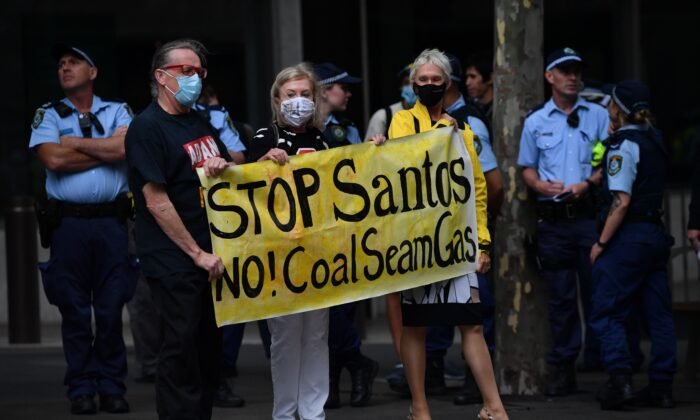Corporate Australia is blamed by researchers for setbacks in green energy
Several major Australian companies are making verbal commitments to address environmental concerns, but their actions are falling short.
Despite displaying public support for addressing climate issues, Australian companies are not following through with their green commitments. This poses a threat to national climate targets, according to a think tank. Researchers from the independent think tank InfluenceMap released a report on Jan. 15 analysing the climate policy engagement of the 70 largest companies in Australia and the 25 most influential industry associations.
Data on corporate and peak body lobbying on climate policy showed that 87 percent indicated support for climate action, but only 35 percent went on to back high-level climate goals, and merely 10 percent supported specific emissions reduction policies in federal consultations. Lead author Jack Herring said most of corporate Australia had perfected using double-speak when addressing climate. He explained companies and industries were making positive statements at a broad level to deflect scrutiny for their real agenda on climate action. “Our research shows many of these statements are not followed through with tangible support for climate policy,” he said. The loudest corporates support the continued use of fossil fuels that contradict scientific advice.
The researchers said corporate influence is a crucial reason for the current federal government’s “lack of ambition” on climate issues. They noted federal Labor’s plans don’t align with the goals of the Paris Agreement. This international treaty requires countries, including Australia, to limit temperature increases to 1.5 degrees Celsius compared to preindustrial levels, and Australia must update its contribution to the global target for 2035 by 2025.
Research Unveils ‘Net-Zero Greenwash’: Further, the research found evidence of “net-zero greenwash,” where false claims and unclear statements slowed progress.
Independent Senator David Pocock notes that companies “talk the talk” about climate while actively lobbying against climate action. He said Santos influenced the government’s introduction of the “Sea Dumping” Bill passed in November, allowing gas companies to export emissions using carbon capture and storage. “These companies are putting the future of the people and places we love at risk,” the ACT senator said.
Concerns were also raised about potential “pro-fossil fuel advocacy” from companies such as Woodside Energy, AGL Energy, BP, Shell, BHP, Rio Tinto, and Whitehaven Coal. The investor-driven Carbon Market Institute and the renamed Australian Energy Producers (formerly the Australian Petroleum Production and Exploration Association, or APPEA) were at the forefront among industry organisations.
Lately, Woodside has played a crucial role in shaping the federal government’s Future Gas Strategy, advocating for a transitional role for fossil fuels amid global decarbonisation. “Gas will play a key role in a responsible energy transition,” Woodside said. They stated that Australia has the natural resources to support “renewable and non-renewable energy developments,” which they believe will be necessary with increasing populations and rising energy consumption.
At the same time, federal Labor approved Santos’ expansion of coal seam gas in Queensland’s Surat Basin, offshore oil and gas exploration covering nearly 47,000 square kilometres of Australian waters, and a metallurgical coal mine in the Isaac River area. According to the research, those with strong ties to the fossil fuel industry were more actively working to influence the government than other sectors. Senior ethics analyst at Australian Ethical, Persephone Fraser, said the strong influence of the fossil fuel industry in climate policy discussions is a significant worry for many investors. “The interests of these few are dominating over the interests of other businesses, investors, and the community who all benefit from effective climate policy that limits warming consistent with the Paris Agreement,” she said. “We need science-based climate policy, and we need to hear voices from across the economy talking to government about what they stand to lose if we don’t limit warming.” The research looked at 179 public opinions on 10 climate and energy policies during the first year of the Albanese government.




